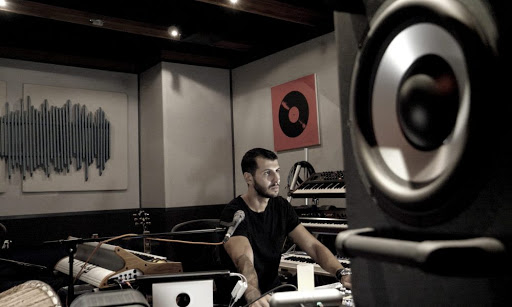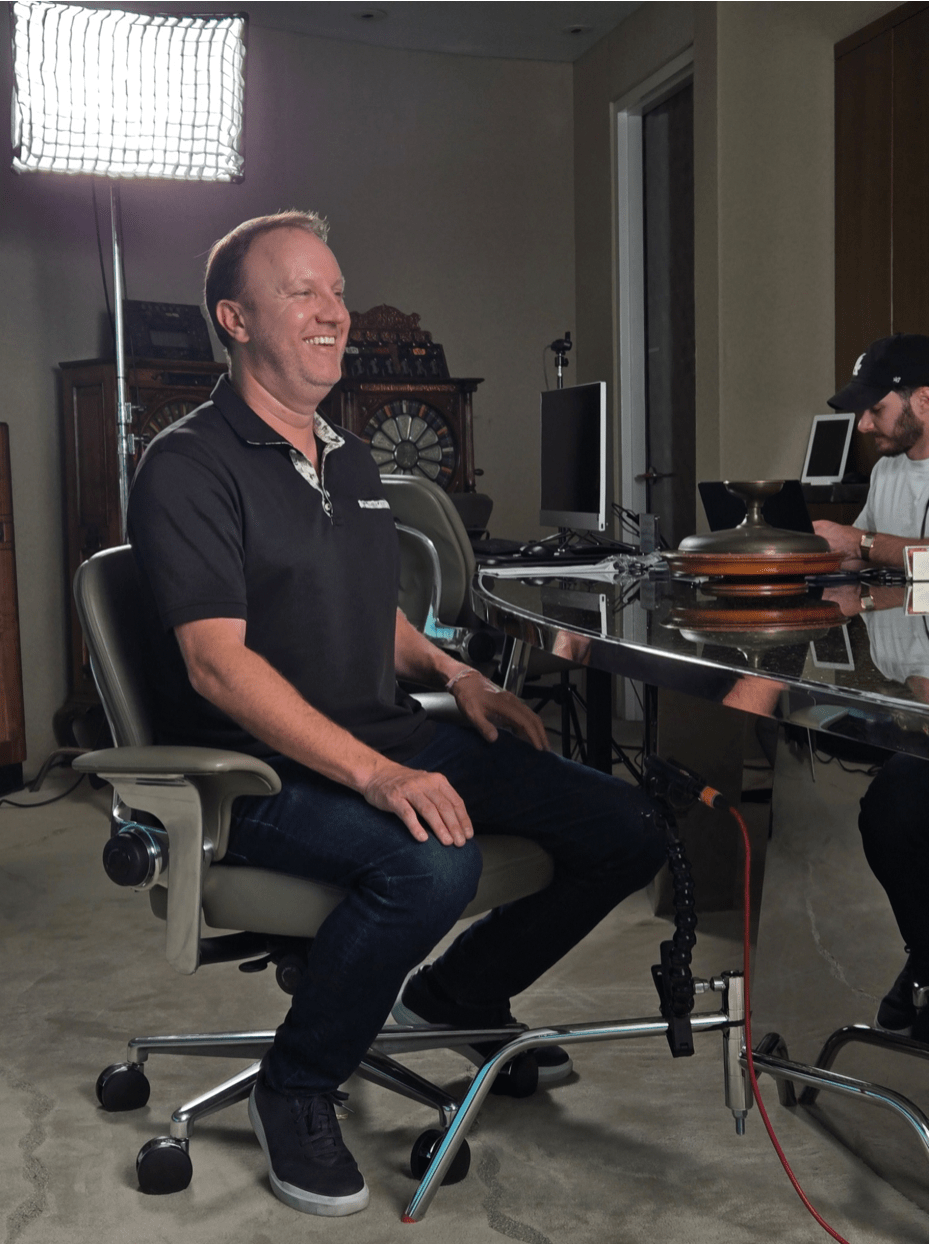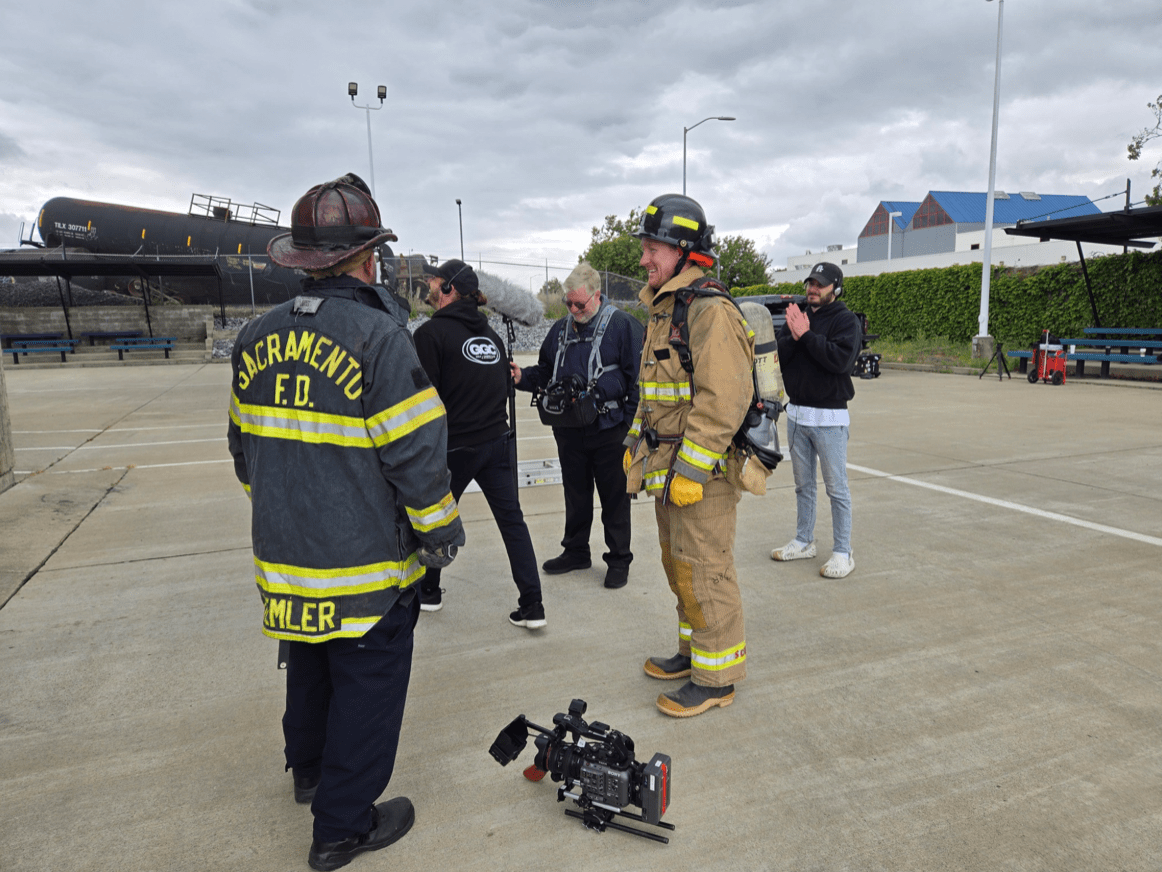Entertainment
Reda Haddioui, from singing in Parisian bars, to producing music in Hollywood for a Golden Globe, Oscar Winning, and Grammy nominated Marvel movie

When you were a child, which record made the strongest impression on you?
I would say Tim Buckley’s song “Once I Was”. I remember when I was a kid, being in the car with my dad when he played me the record for the first time. I felt really emotional hearing the song for the first time even without understanding the lyrics. I was hypnotized by Tim’s vocal performance and the overall vibe. Today understanding the words and being passionate about lyrics in general, it touches me even more.
Where did you train and/or study?
I took a few piano lessons at a very young age but didn’t really stick to it as I wanted to explore music without having any directions. So I’ve been almost self taught until I was sixteen and started taking voice lessons. I’ve started to learn recording and mixing watching online videos during high school but really improved my music production skills at Berklee College Of School where I went to study after earning a scholarship. I studied Music Production & Engineering and had the chance to learn from Grammy-winning producers, songwriters, and engineers. I learned the rest on the field recording and producing hundreds of musicians in Morocco, Paris, Boston, and Los Angeles.
How long have you been working in Los Angeles?
I’ve been working in Los Angeles for a little over three years now. I came from Boston after graduating from Berklee and it has been an incredible journey for me even-though the road has been and can still be tough from time to time.
How did you end up producing a song for the Marvel movie: Spider-man Into The Spider Verse?
I’ve worked really hard since I moved to Los Angeles without counting the hours. Fifteen hours work days were common for me. Nobody was forcing me to put all these hours in, but I’ve always been a perfectionist, always trying to get better at what I do. Eventually my hard work has paid off. I’ve been working part-time in several recording studios in Los Angeles until I found WAX LTD where I really got along with the multi-platinum producers/songwriters Wally Gagel and Xandy Barry. I started as an intern but my hard work has allowed me to step up and eventually end up working with them on bigger and bigger projects, including the song “To The End” for the “Spider-man Into The Spider Verse” movie.
What was the biggest challenge working on such a big project?
I’ve noticed that the biggest challenge working on bigger projects is to treat them as small ones. There’s that unexplainable and magical thing happening when you’re carelessly producing music. The result usually feels authentic, and people connect more to it. In the other hand when you overthink while producing, the song tends to lose its magic and becomes naturally less effective. Producing “To The End”, we were finalizing the mix, but had to change some of the lyrics at the last minute, which also required re-tracking most of the vocals. We only had about two hours on a Sunday to re-track Elliphant’s vocals as her schedule was packed with sessions, and was going back and forth between Los Angeles and Stockholm. I worked with her that day and vocal produced her, doing my best to get the energetic performance the song needed. Fortunately, I had a great time working with her and we’ve been able to achieve what we aimed for. Vocal production is often underrated, but it is probably the most important thing on a record. Vocals are the main focus and if they don’t convey authenticity, people don’t stick to the song.
What is the best professional advice you’ve ever received, and that you would give to up and coming music producers?
The best professional advice I’ve ever received and that I would give without any hesitation sounded cliché and useless to me at first, but today I realize how accurate it is in context. One day while studying at Berklee in Boston, I asked that question to one of my production teachers and successful record producer John Whynot. He gave me the very short answer: “Focus on what you’re doing well, and keep doing it well”. Again, expecting a long answer and hearing this instead could be disappointing. However, once you are plunged into the music world in Hollywood around the most talented people in the world, you’ll have all the temptations in the world to shift your focus towards the million reasons why you’re not as successful as the person you’re looking up to. So you start overthinking, thinking of how to “make it” faster, and you eventually forget that you only have a limited amount of energy, which in this case is wasted overthinking. So yes, it becomes harder and harder to stay focused on what brought you here in the first place, and it is extremely important to keep that in mind to become one of the greatest in your field. Hard work, perseverance, and patience are key to success. Everyone knows it, everyone forgets it during tough times.
Instagram: @redahmusic
Entertainment
Going Public: The Groundbreaking Series Transforming How Americans Invest

In a media landscape saturated with reality TV and startup showcases, Going Public stands apart, not just as a show but as a movement. Now in its third season, the interactive series invites viewers to do more than just watch entrepreneurs chase success. It gives them the tools and the opportunity to invest in startups in real time, democratizing access to early-stage funding and reshaping how ordinary Americans engage with entrepreneurship and wealth-building.
Launched by Todd M. Goldberg, a former MedTech executive who hit a frustrating wall while preparing his company for a Nasdaq IPO, Going Public was born from a moment of personal disillusionment.
“When I brought a list of interested friends and colleagues to the Chairman of the Board,” Goldberg recalls, “he explained that all the IPO shares were reserved for institutional investors. That was my epiphany. I just knew that was wrong. Regular people should have a chance to invest in IPOs, but it needed to go even further.”
That insight became the foundation for Going Public, a hybrid of entrepreneurial storytelling and financial access that offers retail investors a seat at the table usually reserved for venture capitalists and insiders. The show brings audiences inside the capital-raising journey of startups, often before they go public, and leverages a powerful innovation: its “Click-to-Invest” feature.
“The bottom line with Click-to-Invest is that it’s seamless,” says Goldberg. “Viewers can go from watching the show to literally clicking a button. It feels more like a Shopify or Amazon checkout than a traditional investment process.”
This accessibility is central to the show’s mission: to educate, inspire, and empower everyday people to participate in early-stage investing. Unlike financial news channels that target seasoned traders, Going Public merges entertainment with financial literacy, using real startup stories to highlight the risks, rewards, and realities of entrepreneurship. It’s financial content with emotional stakes, real people, and tangible outcomes.
Season 3 reflects how far the show has come and where it’s going. With more celebrity involvement, including gaming icon Ninja backing the cashew milk startup Nutcase, and a strategic partnership with the social media platform X (formerly Twitter), Going Public has widened its reach while deepening its cultural relevance.

“How do you make this mainstream?” Goldberg says. “The concept was The Apprentice meets Shark Tank meets IPO, but with a twist. Viewers aren’t just spectators, they’re stakeholders.”
The show’s selection of featured companies is another defining element. Startups are chosen not just for their growth potential but also for their mission, relatability, and cultural resonance. In Season 3, that includes everything from disruptive wellness brands to tech-enabled platforms, each paired with guidance from top-tier venture capitalists and Silicon Valley mentors.
This season also introduces a livestream finale, a format innovation designed to create a real-time, high-stakes environment where viewers can watch, decide, and invest together. It adds urgency and community to the investing experience, aligning with the show’s values of transparency and participation.
One of the most surprising and meaningful outcomes has been the personal stories from viewers who never imagined themselves as investors. “We’ve heard from teachers, nurses, and even students who said this was their first time investing and they felt confident doing it because the show made it accessible,” Goldberg shares. “It’s not just about money, it’s about empowerment.”
Looking ahead, Goldberg and his team have ambitious plans. They aim to expand the format to new platforms, explore international adaptations, and build out educational tools so viewers not only invest but understand what they’re investing in. The goal isn’t just more participation. It’s smarter participation.
In a world where capital often feels distant, technical, and exclusionary, Going Public brings the financial journey down to earth and into the hands of the people. It’s not just a show. It’s a redefinition of how business stories are told and how wealth can be created and shared.
-

 Tech4 years ago
Tech4 years agoEffuel Reviews (2021) – Effuel ECO OBD2 Saves Fuel, and Reduce Gas Cost? Effuel Customer Reviews
-

 Tech6 years ago
Tech6 years agoBosch Power Tools India Launches ‘Cordless Matlab Bosch’ Campaign to Demonstrate the Power of Cordless
-

 Lifestyle6 years ago
Lifestyle6 years agoCatholic Cases App brings Church’s Moral Teachings to Androids and iPhones
-

 Lifestyle4 years ago
Lifestyle4 years agoEast Side Hype x Billionaire Boys Club. Hottest New Streetwear Releases in Utah.
-

 Tech7 years ago
Tech7 years agoCloud Buyers & Investors to Profit in the Future
-

 Lifestyle5 years ago
Lifestyle5 years agoThe Midas of Cosmetic Dermatology: Dr. Simon Ourian
-

 Health6 years ago
Health6 years agoCBDistillery Review: Is it a scam?
-

 Entertainment6 years ago
Entertainment6 years agoAvengers Endgame now Available on 123Movies for Download & Streaming for Free
